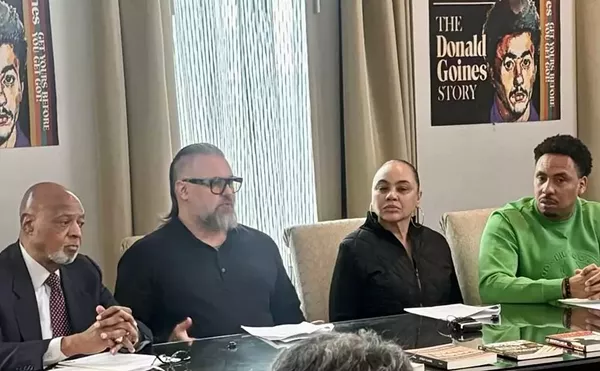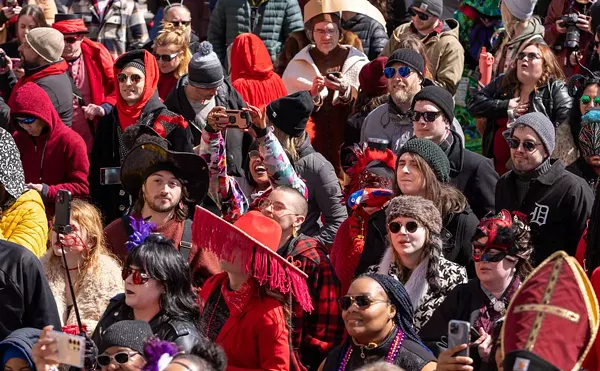The very best documentaries don't just report facts but pull you into their worlds, revealing hidden truths and sometimes stirring the audience to take up the fight for themselves. By the end of this devastating, exhilarating and emotionally charged doc, you just may be compelled to bolt out of your seat, dive into the nearest ocean, and start cutting down fishing nets.
The riveting central figure here is pioneering dolphin trainer Richard O'Barry, a guy who spent more than a decade building up the commercial aquarium trade, but in the many years since has devoted all his energy and body to ripping it down.
O'Barry helped train dolphins for the beloved 1960s TV show Flipper, and the series' success helped popularize such aquatic attractions as Sea World and dolphin-driven tourism worldwide. His years of interaction with dolphins convinced him that these are highly intelligent, loving, even soulful creatures, and that any exploitation, even well-intended captivity, is cruelty.
Another peril to these creatures is the global popularity of sushi, which led the Japanese to overfish waters so much that large marine animals (whales, porpoises, dolphins) are considered competition for commercial fishing, and treated as "pests."
While the "Save the Whales" movement in the '70s had a major impact on whaling, there are still holdouts (notably Japan) that bribe smaller nations to support them in the utterly feckless international body that decides these matters. So it's up to O'Barry, and other likeminded crusaders, to expose the carnage.
His quest led him to Taiji, Japan, a remote and serenely beautiful coastal village that conceals a terrible secret. Several times a year, a small fleet of boats disrupts the dolphin's sonar with loud noises, herding them into a pair of small natural coves, where the more "cosmetic" animals are selected by trainers for sale. The rest of the unwanted are culled, in horrifying, gruesome fashion. Unbeknownst to the Japanese public, some of the meat is relabeled as other fish, and makes it into markets, despite a mercury content that makes it unfit for human consumption.
The Cove's latter half shifts into action mode, as O'Barry assembles a Dirty Dozen-style team of scientists, cameramen, deep divers and even technical experts who build elaborate fake rocks in which to hide video equipment. Their night-vision raids into enemy territory are thrilling, as they attempt to elude the cops and hired thugs who swarm around the coastal village's waters.
The Cove is propaganda pure and simple, but it's effective; you can't defend any "pro" argument here, and it's impossible to refute the sight of beaches awash with dolphin blood. It's also nearly impossible to hear David Bowie crooning "We can be heroes" over the end credits and not feel the tingle that, just maybe, we all can.
At the Landmark Maple Art Theatre, 4135 W. Maple Rd., Bloomfield Hills; 248-263-2111.
Corey Hall writes about film for Metro Times. Send comments to [email protected].






